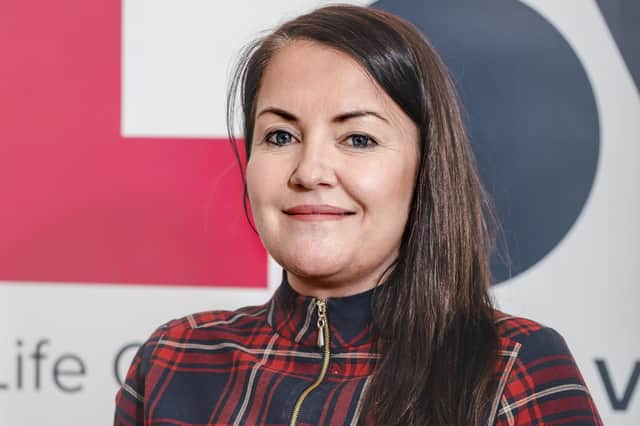We must act to prevent this generation of young people giving up on themselves - Lynn Bell


It is widely recognised that children's mental health is the most important aspect of any child's social and cognitive development, with around half of mental health problems established by age 14 and 75 per cent by age 24. Indeed, one in ten children and young people (aged 5-16 years) have a clinically diagnosable mental problem, although this figure is now rather outdated and probably higher.
Even prior to the pandemic we were witnessing cases of poor mental health at unprecedented levels and a growing number of vulnerable children who cannot access services. As we go through a new lockdown and a return to home schooling, even some children who would not have accessed children’s mental health services normally will need support this year.
Advertisement
Hide AdAdvertisement
Hide AdIt is not an understatement to say that Covid-19 has had a devastating impact on young people’s mental health and wellbeing. The recent Prince’s Trust long-running annual survey of young people’s happiness and confidence returned the worst findings in its 12-year history. It found that more than a quarter (26 per cent) say that they feel unable to cope with life since the start of the pandemic.
In addition, half of the young people interviewed said that their mental health has worsened, with more than half (56 per cent) said they always or often felt anxious.
During lockdown, for families with children with complex care needs and additional support needs, there is no respite. At LOVE Learning we are experiencing multiple requests for emergency support and respite services. Family relationships are breaking down and families are in crisis.
Providing children with an environment that demonstrates love, compassion, trust, and understanding will greatly impact a child so that they can build on these stepping-stones to have a productive lifestyle.
Unfortunately fear, isolation, lack of routine and change will be having a detrimental effect, through Covid. Children need, routine, physical activity, friendship, healthy learning and being outdoors to thrive.
Our children are remarkably resilient, but these frightening statistics on the mental health of our young people do create a compelling case for a national crusade to address what is a mental health pandemic, underpinned by considerably greater resourcing as we seek to transform our beleaguered mental health services.
A recent UK survey of teachers by charity stem4 noted that 73 per cent of teachers warn that mental health provision in schools and colleges across the UK is nearing collapse.
Teachers also warn that child and adolescent mental health services (CAHMS) are overwhelmed due to the pandemic and recent statistics point to the fact that only one health board in Scotland is treating children and young people within an 18-week waiting time and more than 1,000 have been waiting over a year to be treated.
Advertisement
Hide AdAdvertisement
Hide AdUnless the Government takes urgent action now to improve access to services, this young generation will be destined for a future of mental ill health, with a resultant societal impact.
There must be significantly increased investment in and greater collaboration between the public, private and third sectors to deliver adequate mental health support. We must also use this as an opportunity to radically transform our mental health services, both for now and for the future, refocusing on prevention and early intervention.
In the meantime, we would urge those children and their families who feel they need help not to hold back and look to get the support they need.
This mental health crisis is one we can address, but it will require a similar energy, drive and commitment to that which was demonstrated for Covid-19 if we are to achieve this and prevent this generation of young people giving up on their futures – and themselves.
Lynn Bell is CEO of LOVE Learning, a member of the Scottish Children’s Services Coalition
Comments
Want to join the conversation? Please or to comment on this article.